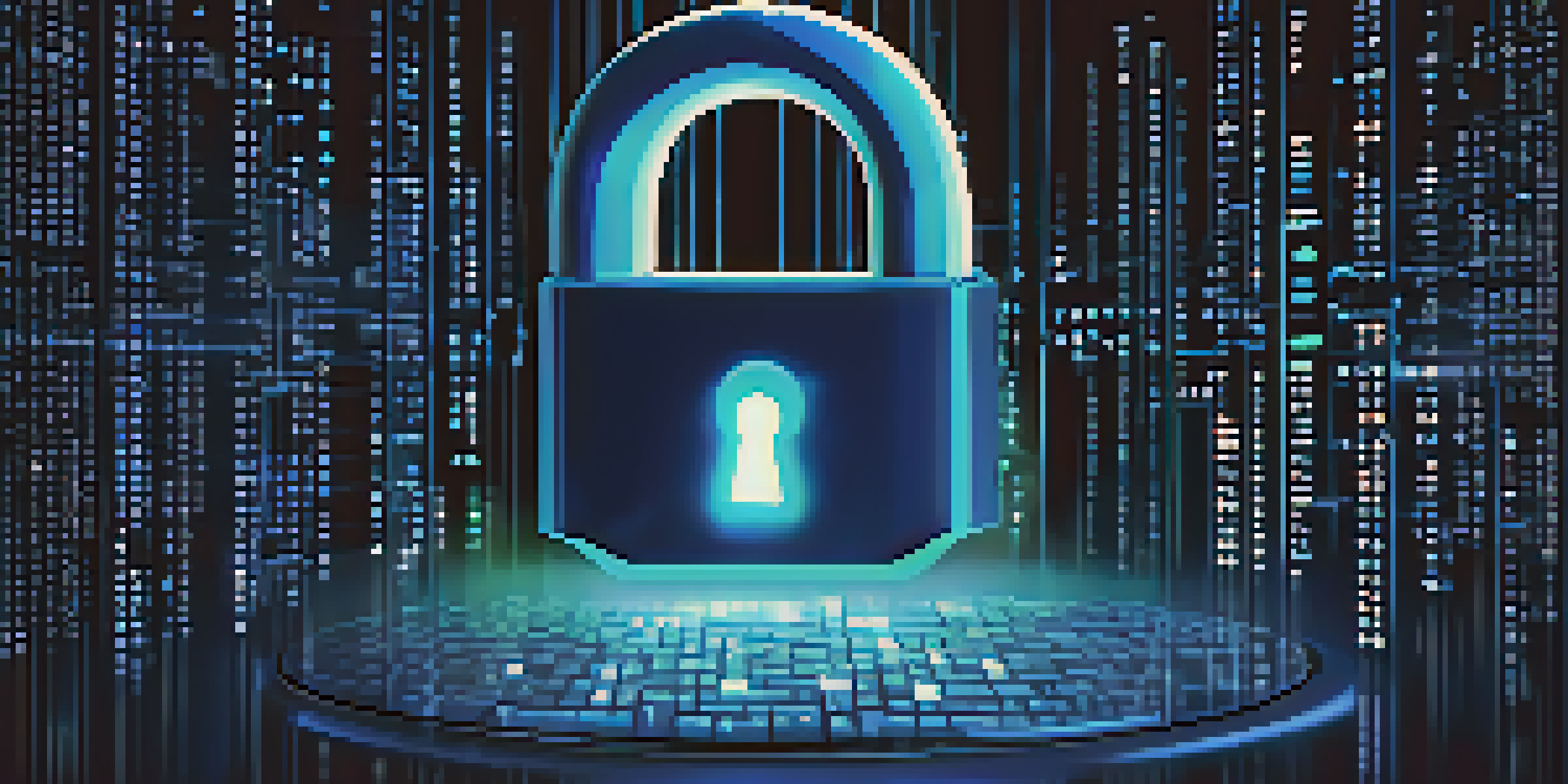The Future of Privacy: Zero-Knowledge Proofs in Smart Contracts

Understanding Privacy in the Digital Age
As our lives become increasingly interconnected, the importance of privacy grows. With more personal data shared online, individuals are more vulnerable to breaches and misuse. This scenario raises a vital question: how do we protect sensitive information while still allowing technology to function effectively?
Privacy is not an option, and it shouldn't be the price we accept for just getting on the Internet.
Privacy isn't just about keeping secrets; it's about controlling who sees what and when. In the realm of digital transactions, especially in blockchain and smart contracts, maintaining privacy can be particularly challenging. That's where innovative solutions like zero-knowledge proofs come into play, providing a way to validate information without revealing the details.
By leveraging zero-knowledge proofs, we can ensure that data remains confidential while still allowing verification of transactions. This balance is crucial as we navigate the complexities of our digital lives, making privacy not just an option but a necessity.
What Are Zero-Knowledge Proofs?
Zero-knowledge proofs (ZKPs) are cryptographic methods that allow one party to prove to another that they know a value without revealing the value itself. Imagine showing someone you can open a locked door without letting them see the key. This concept can be applied in various scenarios, particularly in blockchain technology, where transparency is vital yet privacy must be maintained.

There are two main types of zero-knowledge proofs: interactive and non-interactive. In interactive ZKPs, the prover and verifier engage in a back-and-forth process, while non-interactive ZKPs involve a single message sent from the prover to the verifier. Both types aim to achieve the same goal: proving possession of information without disclosing it.
Importance of Digital Privacy
As our lives become more interconnected, maintaining privacy is essential to protect sensitive information from breaches.
These proofs can revolutionize how we handle sensitive information, especially in financial transactions and identity verification. By enabling parties to confirm information without exposing it, ZKPs enhance trust and security in digital interactions.
The Role of Smart Contracts
Smart contracts are self-executing contracts with the terms of the agreement directly written into code. They operate on blockchain technology, which ensures transparency and security. However, the very nature of smart contracts poses privacy challenges as the details of transactions are often publicly accessible.
The best way to protect your privacy is to be smart and cautious about what you share online.
The integration of zero-knowledge proofs into smart contracts allows for a new level of privacy. They enable parties to execute transactions and share only the necessary information without exposing sensitive data. This means that businesses can operate more confidentially while still benefiting from the advantages of blockchain technology.
For instance, a company could validate that it complies with regulations without revealing its entire financial history. This capability could attract more users to blockchain platforms, fostering a more secure and private environment for digital transactions.
Use Cases of Zero-Knowledge Proofs in Smart Contracts
Zero-knowledge proofs have already started making waves in various industries. In finance, they can allow users to prove their creditworthiness without sharing their entire financial history. This could streamline loan approvals and reduce the risk of identity theft, benefiting both consumers and lenders.
In the realm of healthcare, ZKPs can help safeguard patient data while still proving compliance with regulations like HIPAA. By allowing healthcare providers to verify that they meet privacy standards without exposing individual patient records, we can enhance trust in digital health solutions.
Zero-Knowledge Proofs Explained
Zero-knowledge proofs allow one party to validate knowledge of information without revealing the information itself, enhancing privacy.
Additionally, in voting systems, zero-knowledge proofs can ensure that votes are counted without revealing voter identities. This enhances the integrity of elections, making the case for ZKPs as a vital tool for upholding democratic processes.
Challenges and Limitations of Zero-Knowledge Proofs
Despite their potential, zero-knowledge proofs are not without challenges. One of the primary concerns is the complexity of implementing ZKPs in existing systems. Many organizations may lack the technical expertise to adopt this advanced technology, potentially slowing down its widespread use.
Another limitation is the computational resources required for zero-knowledge proofs, which can be quite intensive. This might lead to slower transaction times, especially on blockchain networks already facing scalability issues. Finding a balance between privacy, security, and speed remains a significant hurdle.
Moreover, as with any technology, there's the risk that zero-knowledge proofs could be misused. Ensuring ethical utilization while maximizing benefits is crucial, making it essential for developers and policymakers to collaborate closely as this technology evolves.
The Future of Privacy with ZKPs
Looking ahead, the future of privacy in the digital world seems promising with the integration of zero-knowledge proofs. As more organizations recognize the need for privacy, the demand for ZKPs is likely to grow. This could lead to more innovations in the field, making privacy both accessible and efficient.
Furthermore, as regulatory frameworks around data privacy become more stringent, zero-knowledge proofs can provide a way for businesses to comply without sacrificing user trust. By adopting ZKPs, companies can build customer confidence while still maintaining essential privacy standards.
Smart Contracts and Privacy
Integrating zero-knowledge proofs in smart contracts enables confidential transactions while ensuring compliance with privacy standards.
Ultimately, the continued development and adoption of zero-knowledge proofs in smart contracts will play a pivotal role in shaping a future where privacy is respected and preserved, paving the way for more secure digital interactions.
Conclusion: Embracing Privacy in Technology
In conclusion, zero-knowledge proofs represent a groundbreaking approach to ensuring privacy in a world where data breaches and misuse are rampant. By incorporating these proofs into smart contracts, we can strike a balance between transparency and confidentiality, fostering trust in digital transactions.
As we navigate the complexities of technology and privacy, it's essential for individuals, businesses, and policymakers to engage in ongoing discussions about how to protect sensitive data. The future of privacy lies in our ability to embrace innovation while safeguarding the rights of individuals.

By understanding and leveraging zero-knowledge proofs, we can create a more secure digital landscape that respects privacy and fosters trust. The journey towards enhanced privacy is just beginning, and it promises to transform the way we interact online.